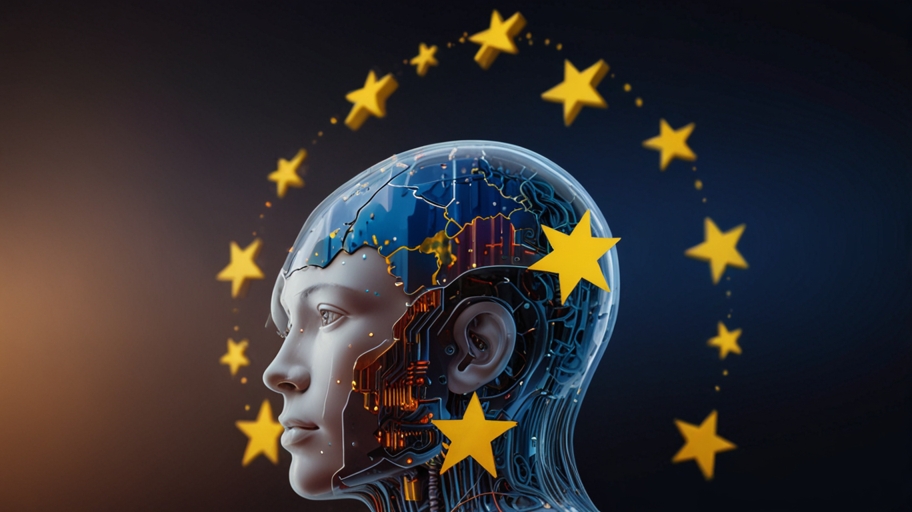The European Union has scheduled to announce the AI Continent action plan on April 9, as their next step in the strategy to enhance AI’s use in businesses. The plan has been arranged for a €200 billion investment package and aims to make Europe a global AI creation center, a “CERN for AI”, as the European Union’s officials have been talking about it.
Henna Virkkunen, the EU’s Head of Technology, shared the news that the action plan is about five key areas: infrastructure, data access, cloud computing, talent development, and regulatory simplification. The quantitative statement shows that the EU is determined to let AI grow and apply its regulatory frame at the same time.
The main element, securing €20 billion in the first instance for AI gigafactories, is a key driver of the initiative – modern data centers configured to enable easier development of complex AI models. It is expected that these will become the heart of AI infrastructure in Europe like CERN is for particle physics research.
European Commission President Ursula von der Leyen has definitely reached the point of “replicating CERN’s success.” The thought comes from CERN’s consistent discoveries in science such as the Higgs boson particle and the subsequent discovery of the World Wide Web.
On the other hand, it might turn out that Switzerland (the original CERN site) will ironically be left out of this new European AI initiative, as it does not belong to the EU. According to a European Commission spokesman, the initiative is actually the European Union’s plan, and the presence of the CERN would seem to be just a gesture.
Switzerland’s AI research and infrastructure would have still been excluded from the overall investment, although the country has made large investments in the first place, such as the seventh globally powerful supercomputer funded by Switzerland.
The Alpine nation has thus become an attractive wicket for such big tech companies in the world as Google, Microsoft, and OpenAI by virtue of its enduring federal technology institutes and the presence of such a solid workforce.
Switzerland’s authorities have stated that they are open to engaging with the EU, but, based on current observations, they have made only a limited number of moves in this regard. It is a fact that an official from the Swiss communications ministry was contacted by Deutsche Welle; he remarked that there are actually no particular talks on the table currently about the Swiss side or the possibility of AI facilities hosting.
This matter draws attention to the fact that the linked political issues of Switzerland with the EU after the negotiations of a framework agreement ended in a deadlock in 2021 create difficulties. Although a fresh bilateral treaty is apparently going to be signed in the spring, and Swiss universities have lately been brought back to such European research programs such as Horizon Europe, the country’s AI vision remains uncertain.
It is being stressed by experts that not only the Swiss but also the European AI initiative that the exclusion would clearly harm might miss great opportunities. Besides, the foreign-policy associations and individual research organizations are committed to the belief that the performance of major AI projects would be possible only with collaborative practices and international engagement beyond EU borders.
The AI Act of the European Union, which will be fully effective by 2027, stipulates a regulation of AI systems on a risk basis which emphasizes the importance of a drafting of the legal framework.
A number of sceptics, like the people in the new US administration under President Trump, still insist on the danger of regaining the control of such a regulator position over this sphere and, thus, to provoke the stagnation of innovation in the area.
However, European authorities claim that their strategy is innovative while also safeguarding the essentials. To this end, the Commission has launched a “digital fitness check” that covers the whole industry, ensures that the rules are still relevant, and resolves issues regarding overlapping regulations and excessively demanding bureaucratic issues, which especially affect small and medium-sized enterprises.
The AI Continent program conveys the European response to the highly intensified global affair of AI development. The European leaders in this race against China and the USA look at the program as the only way to achieve the technological sovereignty and competitive edge in the digital age.
Switzerland is in trouble here if it is left out. Switzerland is a country with a great tradition for scientific excellence and innovation, sidelined from Europe’s leading AI initiative; it could stop its technical development and its economic competitiveness in the following decades.
It is known that science enjoys complete freedom, but it is true that politics does not. This is why the way of Switzerland in the AI future of the continent will be probably determined mainly by political agreements rather than scientific or technological issues, this reflects the increasingly geopolitical nature of technology development.
